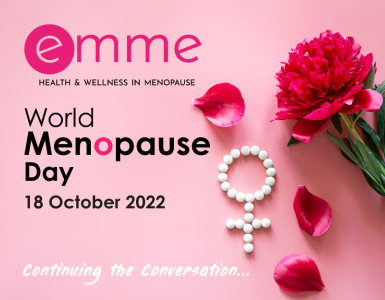If like me, you remember the 90s for the Brit Pop scene, then you’ll probably remember Meg Mathews. Meg was married to Noel Gallagher during that time, and was big on the Brit Pop stage in her role in music PR
Now 53, she’s using that stage to talk, loudly and honestly, about the perimenopause, the menopause and how it impacts a woman’s life.
Meg now realises that she may have experienced the perimenopause, the stage of slow transition to menopause, in her early 40s. She’s told the Guardian newspaper that although she considered herself a woman of the world, she didn’t know what the perimenopause was but now wants to use her voice to educate women in a similar situation.
Getting past the stigma and shame of menopause
She says, “We need to talk about the menopause as loudly and as much as we can because we have to get past the stigma and shame our society places on the menopause. We have to break the taboo”.
Now on HRT after beginning the menopause aged 49
“The only thing I knew about the menopause was hot flushes and no more periods – but I wasn’t getting those two symptoms,” she told the Guardian. After some of her own research, she realised she’d been suffering most of the less well known symptoms such as a burning mouth, mood swings, problems sleeping, brain fog, hair loss and a low libido. After speaking to her GP, she was described antidepressants which had no effect.
Assuming she was suffering the after effects of her “rock and roll lifestyle” she says she couldn’t speak to anyone, especially after losing her mum
So she hid away for months, telling people she had glandular fever. When in fact, her “crippling anxiety, fatigue, headaches, night sweats and aching joints” were down to the perimenopause and the menopause.
But it wasn’t until she spoke out at an AA meeting about her symptoms and about how she thought she was going mad, that a woman told her she thought she was reaching the menopause. So Meg went to an NHS menopause clinic and realised the woman was right.
How these symptoms aren’t spoken about more, amazed Meg, which prompted her to start her blog in 2017, Meg’s Menopause
Full of expert advice and suggestions for products that helped Meg (that she says are for normal women, not the 3% that can afford fancy supplements and expensive doctors) the blog has now had millions of hits. She’s also talking at various government departments to get the menopause conversation going.
But she’s not stopping there
She says, “I want to help women create a sisterhood network, like Weight Watchers, where they meet weekly in a village hall-type setting to discuss their symptoms and swap advice because many women don’t have anyone to talk to – we’re in a bubble in London. I have learned everything just through my network of women.”















